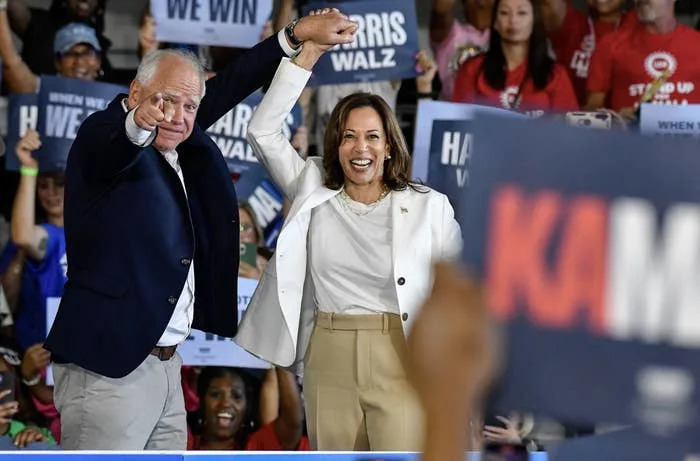The Kamala Harris campaign trolled Elon Musk and Donald Trump in real time during the much-hyped and subsequently much-mocked “conversation” with Trump that Musk hosted on X.
At one point during the conversation, the Harris team pointed out that Trump was “slurring” while arguing that climate change isn’t a problem because he’ll “have more oceanfront property.”
The X account Kamala HQ first shared an older tweet from Musk in which he wrote, “Donald Trump will be 82 at end of term, which is too old to be chief executive of anything, let alone the United States of America.” Kamala HQ retweeted the post and simply captioned it, “Interesting.”
The team also trolled Trump from his platform of choice, Truth Social, where they reshared a 2023 post in which the former president mocked political rival Rick Desantis’ own failed interview on X.
The campaign also sent out an email to supporters with the subject line, “The two worst people you know are live this evening,” and an opening that pointedly called Musk’s website Twitter and refused to call it X.
After the discussion ended, the Harris campaign released a statement mocking it as “whatever that was,” and also poking fun at the glitchy start that delayed the interview by more than half an hour. Musk blamed the delay, without providing evidence, on a “massive DDOS attack,” though it should be noted that previous events he’s held on Spaces were beset by similar problems.
The campaign also dismissed Trump and Musk as “self-obsessed rich guys who will sell out the middle class and who cannot run a livestream in the year 2024.”
Kamala HQ weren’t the only people who took advantage of the failure to roast Musk and Trump. Antonio Arellano, vice president of communications at NextGen America, wrote on X, “The Elon <> Trump interview just crashed. Just like his campaign will in November.”
Journalist Aaron Rupar shared a photo from “The Simpsons” of Homer Simpson pouring water on a computer system and wrote on X, “twitter engineers logging on ahead of the Elon/Trump space.”
As it became apparent the planned conversation was not only going to begin late but was going to begin very, very late, others began to join the mix. MSNBC’s Tim Miller tweeted, “Elon probably shouldn’t have fired all those childless cat ladies maybe one of them could have figured out how to successfully host an interview on this platform.”
Miller later added, “Hopefully the people working on the Neuralink chip Elon wants to plant in our brains doesn’t overlap with the team in charge of the live audio blog he can’t get to work.”
xx
The post Kamala Harris Campaign Trolls ‘Slurring’ Trump and Musk Using Their Own Words During X Livestream appeared first on TheWrap.

















